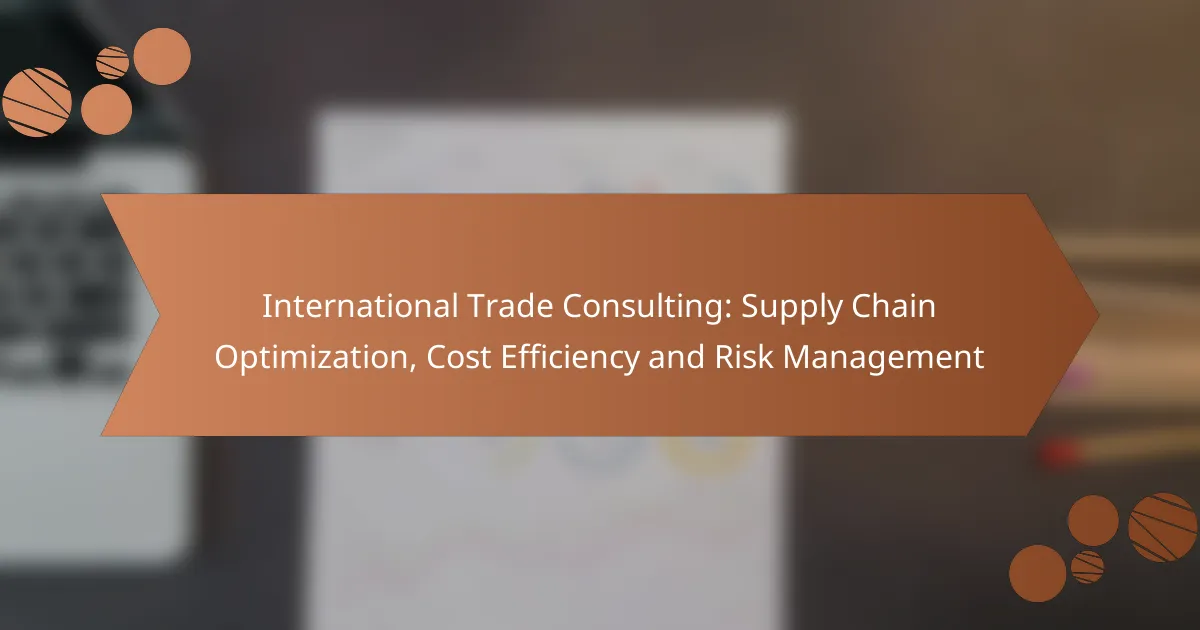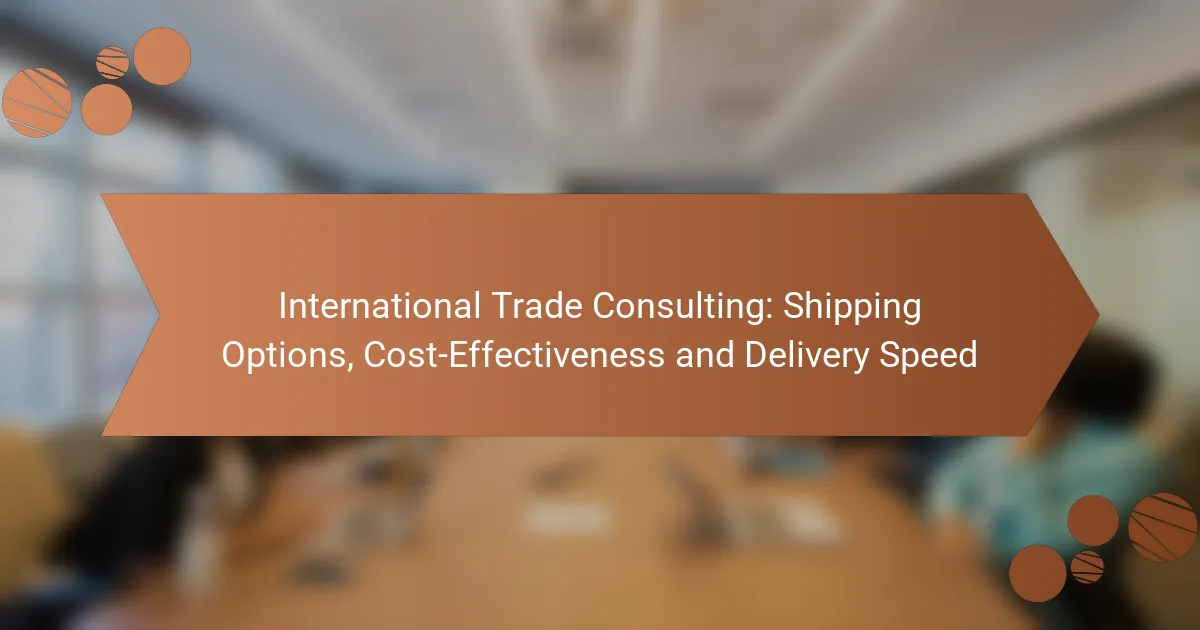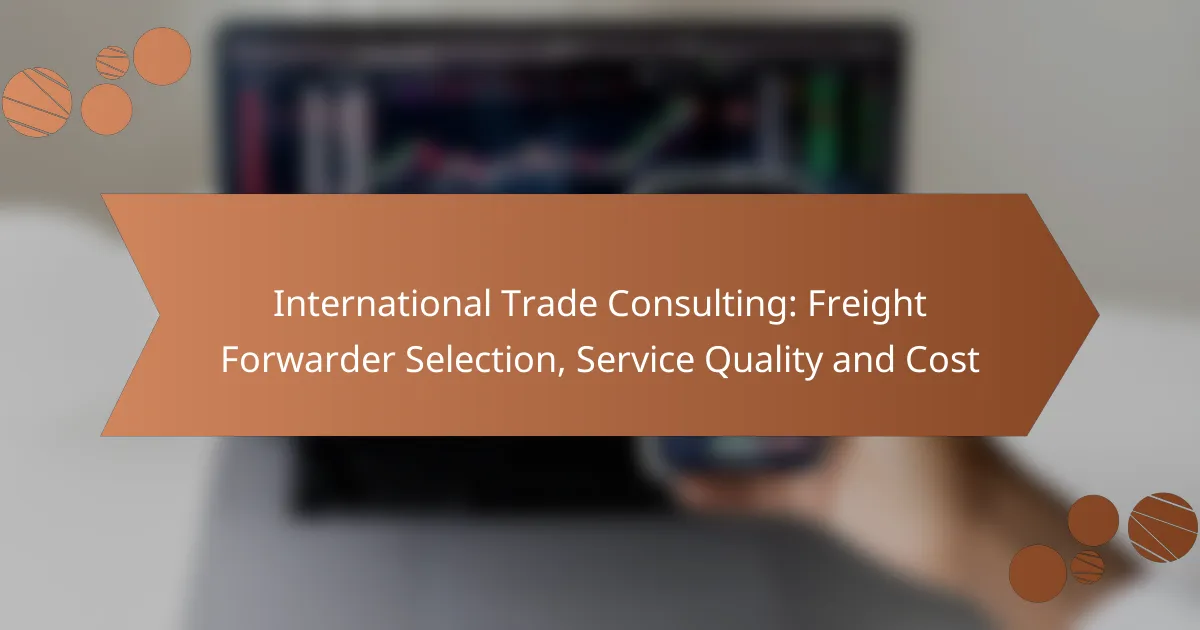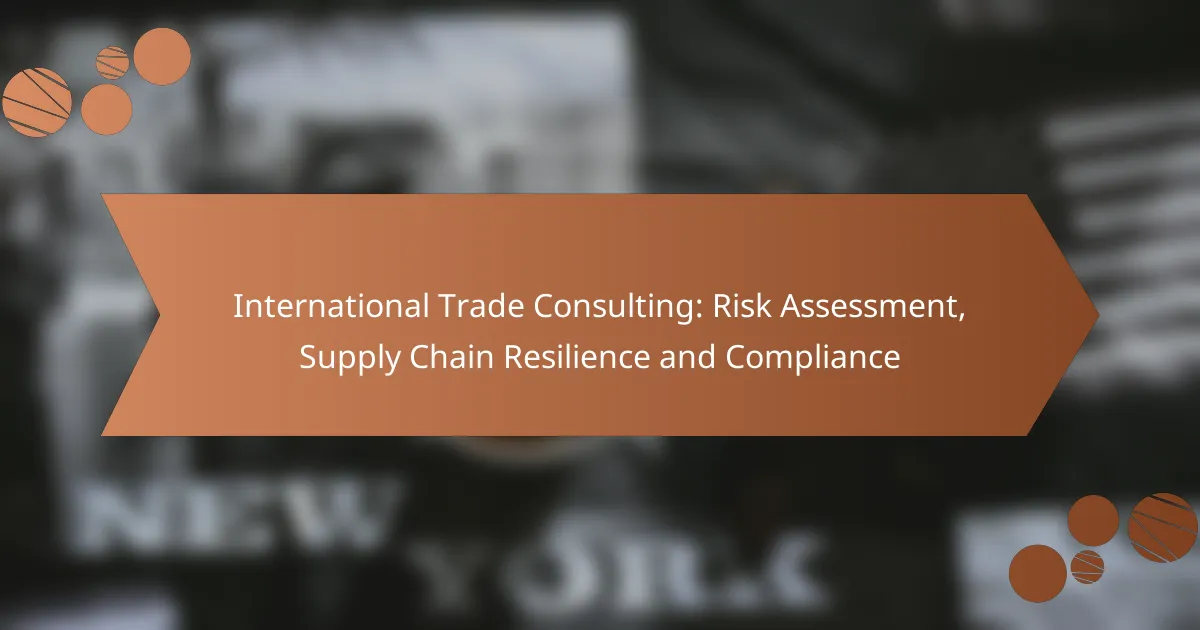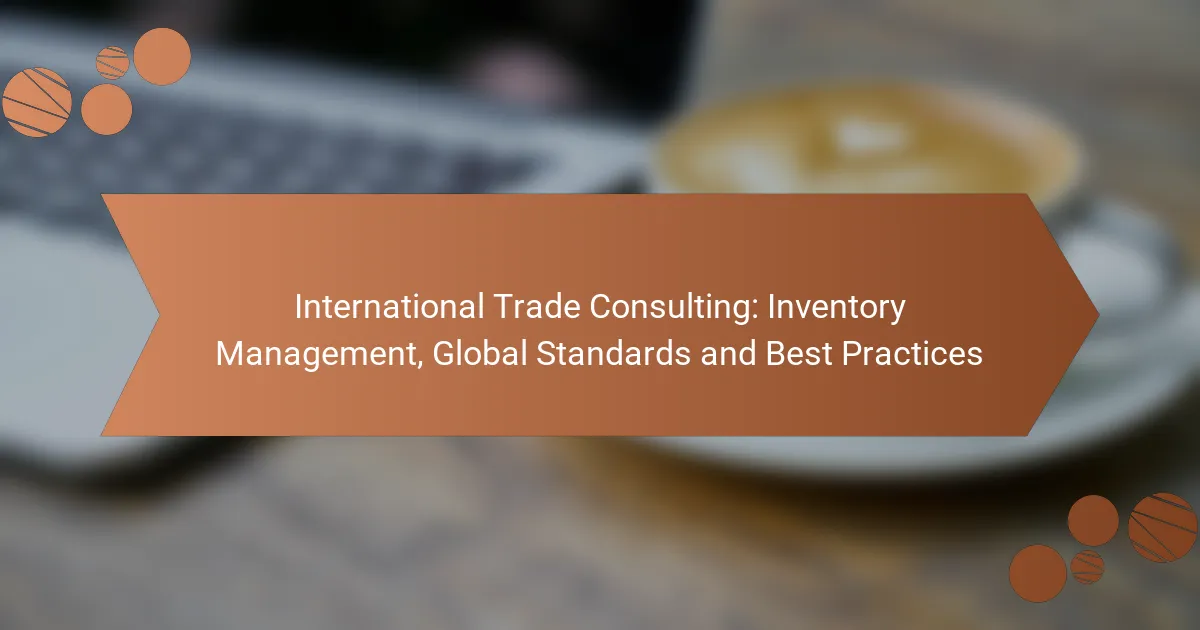What are the best logistics strategies for international trade?
The best logistics strategies for international trade focus on efficiency, cost-effectiveness, and reliability. Implementing effective inventory management, utilizing cross-docking techniques, and forming third-party logistics partnerships can significantly enhance supply chain performance.
Just-in-time inventory management
Just-in-time (JIT) inventory management minimizes stock levels by aligning orders with production schedules. This strategy reduces holding costs and waste, making it ideal for businesses aiming to optimize cash flow. For successful JIT implementation, companies should maintain strong relationships with suppliers to ensure timely deliveries.
Consider using technology such as inventory management software to track stock levels and forecast demand accurately. This approach can help businesses avoid overstocking or stockouts, which can disrupt international trade operations.
Cross-docking techniques
Cross-docking is a logistics practice where incoming goods are directly transferred to outbound transportation with minimal storage time. This technique streamlines the supply chain by reducing handling costs and speeding up delivery times. It is particularly effective for perishable goods or high-demand products.
To implement cross-docking, businesses should assess their distribution network and ensure that transportation schedules align closely with arrival times. This coordination can significantly enhance efficiency and reduce lead times in international trade.
Third-party logistics partnerships
Third-party logistics (3PL) partnerships involve outsourcing logistics functions to specialized providers. This strategy allows businesses to leverage the expertise and resources of 3PL companies, which can lead to improved service levels and reduced operational costs. Companies can focus on their core competencies while leaving logistics management to the experts.
When selecting a 3PL partner, consider factors such as their experience in international trade, technology capabilities, and customer service track record. Establishing clear communication and performance metrics is essential to ensure that the partnership meets your logistics needs effectively.
How can supply chain management improve efficiency?
Supply chain management enhances efficiency by optimizing processes, reducing costs, and improving service levels. Effective management ensures that products move smoothly from suppliers to customers, minimizing delays and waste.
Data analytics for demand forecasting
Data analytics plays a crucial role in demand forecasting by analyzing historical sales data, market trends, and consumer behavior. This information helps businesses predict future demand more accurately, allowing for better inventory management and resource allocation.
Companies can use various analytical tools to identify patterns and adjust their supply chain strategies accordingly. For instance, utilizing machine learning algorithms can enhance forecasting accuracy, potentially reducing stockouts and excess inventory by significant margins.
Automation in warehousing
Automation in warehousing streamlines operations by using technology to manage inventory, process orders, and handle logistics. Automated systems, such as robotic picking and sorting, can significantly speed up these processes while reducing human error.
Implementing automation can lead to lower operational costs and improved accuracy in order fulfillment. Businesses should consider the initial investment against long-term savings, as automation can yield returns within a few years, depending on the scale of operations.
What are the key challenges in international logistics?
International logistics faces several key challenges, including compliance with customs regulations and fluctuations in transportation costs. These factors can significantly impact the efficiency and profitability of global supply chains.
Customs regulations compliance
Compliance with customs regulations is crucial for smooth international logistics operations. Each country has its own set of rules governing imports and exports, which can vary widely and change frequently. Companies must stay informed about these regulations to avoid delays, fines, or confiscation of goods.
To ensure compliance, businesses should invest in training for their logistics teams and consider working with customs brokers who specialize in navigating complex regulations. Regular audits of documentation and processes can also help identify potential compliance issues before they become problematic.
Transportation cost fluctuations
Transportation costs can fluctuate due to various factors, including fuel prices, demand for shipping capacity, and geopolitical events. These fluctuations can affect overall logistics budgets and pricing strategies, making it essential for companies to monitor trends and adjust accordingly.
To manage transportation costs effectively, businesses should consider diversifying their shipping routes and modes. Establishing long-term contracts with carriers can also provide more stable pricing. Additionally, using technology for real-time tracking and analytics can help identify cost-saving opportunities and optimize logistics operations.
How to choose a logistics provider for e-commerce?
Choosing a logistics provider for e-commerce involves assessing their capabilities to meet your specific shipping needs efficiently and cost-effectively. Key factors include service offerings, technology integration, and the ability to scale with your business.
Evaluating service offerings
When evaluating service offerings, consider the range of shipping options available, including domestic and international delivery, express services, and freight options. A good logistics provider should offer flexibility to accommodate various shipping requirements, such as weight limits and delivery speed.
Additionally, assess their customer support and tracking capabilities. Providers that offer real-time tracking and responsive customer service can significantly enhance your operational efficiency. Look for providers that have experience with e-commerce businesses similar to yours, as they will better understand your unique challenges.
Assessing technology integration
Technology integration is crucial for seamless logistics operations. Ensure that the logistics provider can integrate with your existing e-commerce platform, such as Shopify or WooCommerce, to streamline order processing and inventory management. This integration can help reduce errors and improve order fulfillment speed.
Evaluate the provider’s use of technology for tracking shipments and managing logistics data. Providers that utilize advanced analytics and reporting tools can offer insights into shipping performance and help you make informed decisions. Look for features like automated notifications and easy access to shipping metrics to enhance your operational efficiency.
What are the benefits of using technology in supply chain management?
Technology enhances supply chain management by improving efficiency, visibility, and responsiveness. It enables businesses to streamline operations, reduce costs, and adapt quickly to market changes.
Real-time tracking systems
Real-time tracking systems allow companies to monitor the movement of goods throughout the supply chain. By utilizing GPS and RFID technology, businesses can gain immediate access to shipment locations, which helps in managing inventory levels and optimizing delivery schedules.
Implementing these systems can lead to significant improvements in customer satisfaction, as clients receive timely updates on their orders. Additionally, real-time data can help identify potential delays, allowing for proactive problem-solving.
Blockchain for transparency
Blockchain technology offers a decentralized and secure method for recording transactions within the supply chain. This transparency ensures that all parties involved can access the same information, reducing disputes and enhancing trust among stakeholders.
By using blockchain, companies can trace the origin of products, verify compliance with regulations, and ensure ethical sourcing. This technology is particularly valuable in industries like food and pharmaceuticals, where traceability is crucial for safety and quality assurance.
What are the trends in international trade consulting?
Current trends in international trade consulting focus on sustainability, digital transformation, and the need for agile supply chains. These trends reflect a growing emphasis on efficiency, environmental responsibility, and technological integration in logistics and supply chain management.
Sustainability in logistics
Sustainability in logistics involves implementing practices that reduce environmental impact while maintaining efficiency. Companies are increasingly adopting green logistics strategies, such as optimizing transportation routes, utilizing electric vehicles, and reducing packaging waste.
For example, many firms are shifting towards using biodegradable materials and enhancing recycling processes. This not only helps the environment but can also lead to cost savings in the long run, as consumers are more likely to support brands that prioritize sustainability.
Digital transformation in supply chains
Digital transformation in supply chains refers to the integration of digital technologies to improve operations and decision-making. This includes the use of data analytics, artificial intelligence, and the Internet of Things (IoT) to enhance visibility and responsiveness throughout the supply chain.
Companies that embrace digital tools can better forecast demand, manage inventory, and streamline logistics. For instance, real-time tracking systems allow businesses to monitor shipments closely, reducing delays and improving customer satisfaction. Investing in these technologies can yield significant competitive advantages in today’s fast-paced market.

